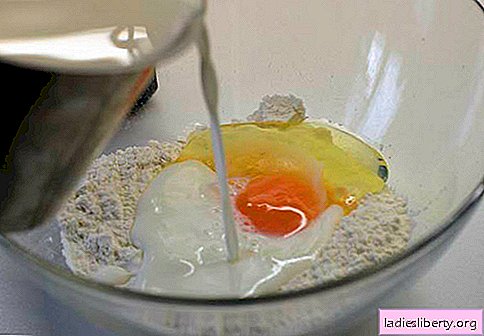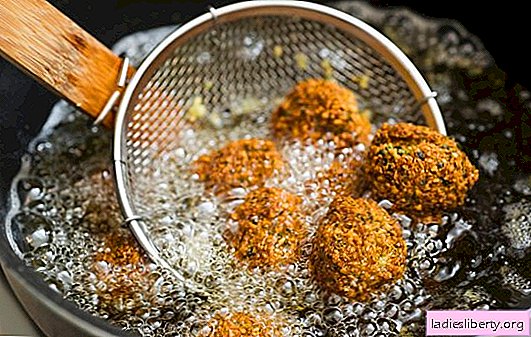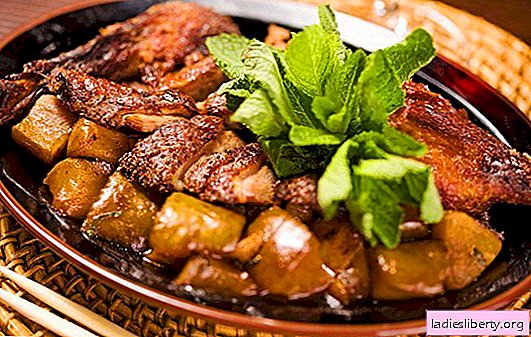
Rye bread has long been a symbol of the Russian people. Everyone has heard about its beneficial properties since childhood, but is it as useful as they say about it, and can rye bread harm human health?
The composition of rye bread: what is its use?
Rye bread is very popular because of its wonderful properties, but what makes it so healthy? To understand this issue, it is necessary to consider the composition of rye bread. The main components are: rye flour, sourdough, salt and water.
With the development of technology, there are many manufacturers of rye bread, which change the classic composition, diluting it with various types of flour, yeast, sugar.
What are the benefits of rye bread?
Rye bread has a lot of factors that positively affect the health and human body. The most valuable and useful properties of rye bread are:
• Cleansing the walls of the intestines, elimination of toxins
• Stabilization of the gastrointestinal tract
• Minimum calorie content
• The content of magnesium, iron and folic acid
• Reducing the risk of cancer
• Positive effect on the reproductive system
• Low glycemic index
• Removal of cholesterol from blood vessels
• Positive effect on nails, teeth, skin and hair
• Removing constipation
• High in various vitamins and amino acids
• Acceleration of metabolism
Moreover, “black” bread brings a feeling of satiety much faster than a product from wheat flour, which is also an undoubted advantage for diet food. Also, rye bread is perfect for people with diabetes, as it has a low glycemic index (glucose index).
Why is rye bread more healthy than other types?
Rye flour in bread production, unlike wheat, does not go through a thorough grinding process and retains all the beneficial properties.
The fact is that the marking "premium" on a bakery product only means that the grain has gone through several stages of processing and contains a minimum of benefit.
They try to preserve the grain for rye bread in its original form, carrying out only a number of mandatory procedures. At the same time, the shell of the grain and the germ are preserved - the most useful components of rye.
How to eat rye bread so that it benefits?
Eating in accordance with the recommended dosage is a very important factor in the question of the benefits of rye bread. For an adult who leads an active lifestyle, the ideal norm is 300 g of bread per day.
For people who engage in heavy physical labor daily, 500 g per day is recommended. For those whose life is associated with passive activities, about 150-200 g per day are shown for use.
Doctors advise older people to completely abandon bakery products based on wheat flour and switch to rye bread, because in old age it is very important to get all the necessary nutrients that the body contains “brown bread”.
Contraindications and the harm of rye bread?
Despite the huge list of useful properties of bread based on rye flour, it, like any other useful product, is not recommended to everyone, and in some cases can even be harmful. Do not eat “black” bread for people with the following health problems:
• stomach ulcer
• gastritis
• Inflammation of the liver
• Gall bladder inflammation
• various types of colitis
Due to the content of leaven in the composition of rye bread, it is not recommended for people with gastrointestinal tract disorders.
Also, some of the components of rye bread can adversely affect your health. These include:
• Yeast
Once in the stomach, the yeast oxidizes and swells, thereby causing heartburn. When buying, you need to pay attention to the composition of the product, and make a choice towards yeast-free of bread.
• Sweet additives
For the sake of attracting attention, producers often add nuts, fruits, seeds, and sweet additives to rye bread. This filling is absorbed and digested for a long time, and also irritates the walls of the stomach. Priority is to purchase rye bread without additives, since having harmful components in the composition, the product loses its useful properties.
• Butter
Hostesses who bake rye bread on their own sin sin by adding butter or margarine. Due to the increased fat content of the product, it is poorly digested by the stomach and stagnates for a long time, causing heartburn.
The use of rye bread in the diet of a child
Rye bread should be introduced with caution in the child’s diet. In children under 3 years of age, the digestive system is not yet formed, that is, bread is too complex food for a small child. It will be difficult for the stomach to digest it, bread will begin to stagnate, which is fraught with poor health of the baby and subsequent problems with the gastrointestinal tract.
So how to introduce rye bread into a child’s diet?
1. From 7 months you can give the baby to bite a cracker of rye bread;
2. "Black" bread can be introduced into a child’s diet only from 3 years old;
3. At 3 years, you need to analyze the reaction to rye bread: you need to give your child 15 g of bread and observe it;
4. If the baby normally responds to rye bread, then you can gradually increase the amount of bread per day to 100 g.
It is recommended that you carefully follow the above rules so as not to harm your child.
Rye bread during pregnancy and lactation: beneficial or harmful?
According to doctors, rye bread is not only possible for a pregnant woman, but also necessary. But it is worth thinking about bakery products based on wheat flour, as doctors strongly recommend expectant mothers to abandon this delicacy.
"Coarse" black bread, brings a pregnant woman a charge of vitamins, removes toxins and prevents anemia, which is too common in expectant mothers. Of course, it is better to bake it yourself, without possible harmful additives, while preserving all the useful properties of its components.
The main thing in this matter is not to overdo it, since yeast, which, one way or another, is added to the composition of rye bread, can lead to such an unpleasant ailment as polyhydramnios.
As for nursing mothers, the period during lactation is better to abandon the use of rye bread, because due to the presence of leaven in the product, bread can provoke a baby's rash, flatulence, and stool disturbance (especially constipation). Constipation is a common problem in nursing mothers who eat rye bread. This problem affects both the mother and the baby.
The optimal amount of daily consumption of rye bread during lactation is 100 g.
In addition, it is important to note that “black” bread is not recommended if there are the following factors:
• Flatulence or a tendency to it (mother and child)
• Rehabilitation period after cesarean section
• The acute stage of diseases of the gastrointestinal tract
In conclusion, it can be noted that rye bread is certainly a healthy product with a lot of advantages, but it is important to follow the recommendations so that the use of this product gives not only health, but also positive emotions.











